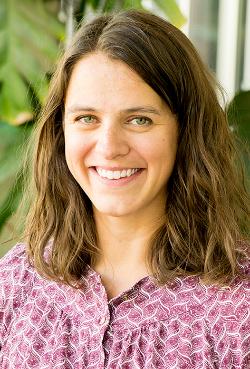 |
How are the humanities perceived in society today and how does the news media portray these perceptions?
Defending, preserving and advocating for the humanities is the prime mission for a group of researchers here at the University of Miami, the University of California, Santa Barbara (UCSB), and California State University, Northridge. Funded by a $1.1 million grant, they hope to collect massive amounts of data from digital magazines, newspapers, blogs, TV and radio news to dig deep into the current conversation about how the public views the humanities.
“Our hypothesis is that computational methods can help us learn new things about how news media sources portray the humanities,” said Lindsay Thomas, assistant professor in the English Department at the UM College of Arts and Sciences, who specializes in the digital humanities, media and cultural studies, and contemporary American literature.
 |
| Lindsay Thomas, English Department |
Thomas is also co-director of the UCSB-based project WhatEvery1Says (WE1S), a multi-institutional digital humanities project that uses digital humanities methods to study current public discourse about the humanities. The project is an extension of 4Humanities, an advocacy initiative Alan Liu, an English professor at UCSB, started in 2010 in response to what some call the “humanities crisis”—the perception that the humanities are of little value in higher education.
In 2013, Liu also started WE1S to source digital media as a way to learn what pundits, politicians, scholars, students and others think about the humanities. The Andrew W. Mellon Foundation recently awarded WE1S the $1.1 million grant to continue studying the representation of the humanities in public discourse.
“With this grant, we hope to accomplish a few things,” said Thomas. “One wing of the project is more scholarly, which includes writing articles, conference papers and creating materials for other scholars about our technical methods and findings. The other wing focuses on public-facing output, such as growing our website and producing research-based materials like brochures, flyers, posters, and infographics that communicate our findings. These materials can be used by academics, journalists, administrators and government officials when making arguments about why we need to support the humanities.”
Thomas says the grant will support graduate research assistants at UM and UCSB, two post-doc scholars at UCSB and undergraduate summer researchers at California State University, Northridge. Focused data collection using computer algorithms will search a wide variety of archived media that incorporate the word “humanities” in the texts.
“Unfortunately, we are going to miss some things,” said Thomas. “For example, if an article uses the word ‘history’ instead of ‘humanities,’ we won’t be able to capture it for our data collection, but our hypothesis is that articles that use the word ‘humanities’ are the best and first place to look for any discourse about the humanities."
Other aspects of the project include searching how the humanities are mentioned within Spanish-language sources and creating customizable tools for other digital humanists to use when engaging in research and data collection on larger scales. According to its mission statement, the Foundation endeavors to strengthen, promote, and, where necessary, defend the contributions of the humanities and the arts to the flourishing of humankind and to the well-being of diverse and democratic societies. For more information about WE1S, its mission and who is involved, visit http://we1s.ucsb.edu/.
# # #
October 18, 2017

